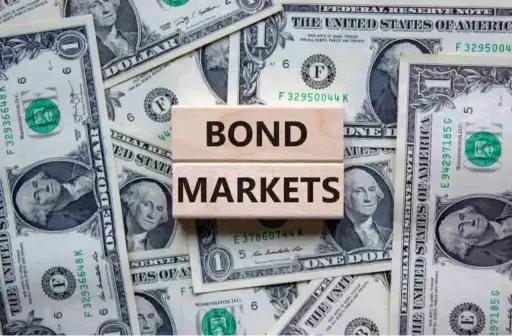U.S. banking policies significantly influence investment decisions, shaping the strategies of financial institutions, investors, and businesses. This article explores key policies and their impact on investment trends.
How U.S. Banking Policies Influence Investment Choices
The banking sector in the U.S. is highly regulated by a variety of policies that directly influence investment decisions, both for financial institutions and individual investors. These regulations are designed to ensure financial stability, promote responsible lending, and safeguard consumers. This article will explore the key U.S. banking policies that affect investment decisions, examining their role in shaping capital markets and their broader impact on the economy.
1. The Federal Reserve and Monetary Policy
The
Federal Reserve (Fed) plays a central role in shaping U.S. banking policies and, consequently, influencing investment decisions. Through its monetary policy actions, the Fed impacts interest rates, inflation, and the overall economic environment.
- Interest Rate Policies: The Fed controls interest rates, which directly affect borrowing costs for businesses and consumers. Changes in the federal funds rate influence the yield on bonds, the cost of loans, and the behavior of equity markets. For example, lower interest rates typically make borrowing cheaper, encouraging businesses to invest and expand, which can lead to increased market liquidity and higher stock prices.
- Quantitative Easing (QE): In response to economic downturns, the Fed may engage in quantitative easing, where it purchases government bonds to increase the money supply. This has a direct impact on investment decisions by lowering long-term interest rates and increasing liquidity in the financial markets.
- Inflation Targeting: The Fed's approach to managing inflation also influences investment decisions. High inflation may prompt the Fed to raise interest rates to cool down the economy, while low inflation may lead to policies that promote economic growth and investment. Investors must adjust their strategies based on these expected shifts in policy.
By adjusting monetary policy, the Fed creates an environment that either encourages or discourages investment, depending on the prevailing economic conditions.
2. Dodd-Frank Wall Street Reform and Consumer Protection Act
The
Dodd-Frank Act was enacted in 2010 in response to the 2008 financial crisis. It introduced a comprehensive framework to regulate financial institutions and protect consumers, fundamentally changing the landscape for banking and investment decisions.
- Volcker Rule: One of the key components of Dodd-Frank is the Volcker Rule, which limits the ability of banks to engage in proprietary trading and restricts their investments in hedge funds and private equity. This policy aims to reduce speculative behavior by banks and ensure that they focus on serving clients rather than taking excessive risks with their own capital. As a result, banks are forced to be more cautious in their investment strategies.
- Capital Requirements: Dodd-Frank introduced stricter capital adequacy requirements for banks, ensuring that they hold sufficient reserves to absorb losses during times of financial distress. This regulation affects the investment strategies of banks by limiting their ability to make high-risk investments and requiring them to maintain more stable portfolios.
- Consumer Protection: The creation of the Consumer Financial Protection Bureau (CFPB) under Dodd-Frank added a layer of oversight to ensure that banks do not engage in practices that could harm consumers, such as predatory lending. While this policy primarily impacts consumer-facing banks, its influence can ripple through investment decisions as well, encouraging more transparency and ethical investing.
The Dodd-Frank Act has reshaped how banks and investors approach risk, ensuring that the financial system is more resilient to shocks and that consumers are better protected.
3. Basel III and International Banking Regulations
The
Basel III framework is an international regulatory standard designed to strengthen the regulation, supervision, and risk management of the banking sector. U.S. banks must comply with these standards, which also influence investment strategies.
- Capital Buffers: Basel III imposes higher capital requirements for banks, including the establishment of capital buffers that banks must hold in reserve. These buffers act as a cushion during times of economic stress, limiting the potential for bank failures. For investors, this means that banks are less likely to take excessive risks in pursuit of short-term profits, leading to more stable investment strategies.
- Leverage Ratio: Basel III also introduced a leverage ratio that limits the amount of borrowing a bank can engage in relative to its capital. This ensures that banks do not become over-leveraged, which can lead to instability in financial markets. For investors, a more conservative approach to leverage can lead to more predictable and less volatile returns.
- Liquidity Requirements: The framework requires banks to maintain higher levels of liquidity to ensure they can meet their obligations during times of financial stress. This reduces the likelihood of a liquidity crisis and provides greater stability to the financial system, making banks a safer place for investors to park their capital.
Basel III aims to prevent another global financial crisis by making banks more resilient to economic shocks, which has a direct impact on investment decisions.
4. The Tax Cuts and Jobs Act of 2017
The
Tax Cuts and Jobs Act (TCJA), signed into law in December 2017, reduced corporate tax rates and introduced other tax changes that affect investment decisions in the U.S.
- Lower Corporate Tax Rates: The TCJA cut the corporate tax rate from 35% to 21%, which provided an immediate boost to corporate profitability. This policy change incentivized businesses to reinvest their tax savings into expansion, research and development, and higher dividend payouts to shareholders. As a result, investors could expect higher returns on their investments, particularly in sectors that benefited from the tax cut.
- Repatriation of Overseas Profits: The TCJA allowed U.S. companies to bring back profits held overseas at a reduced tax rate. This encouraged investment in U.S. markets, as businesses used the repatriated funds for stock buybacks, dividends, and other investments. This led to a rise in stock prices, benefiting equity investors.
- Changes to Estate and Inheritance Taxes: The TCJA also raised the exemption threshold for estate taxes, which may encourage investment in the form of long-term wealth management strategies and trusts.
The Tax Cuts and Jobs Act has made U.S. investments more attractive by lowering corporate tax burdens and incentivizing business growth, influencing both domestic and international investors.
5. Federal Reserve's Regulatory Role in Bank Investment
The
Federal Reserve plays a crucial role in overseeing the activities of U.S. banks and ensuring the stability of the financial system. Through its regulatory authority, the Fed can influence the types of investments banks can make and how they manage risks.
- Stress Tests: The Fed conducts regular stress tests on major financial institutions to assess their ability to weather economic downturns. These tests evaluate a bank's investment portfolio, capital reserves, and overall financial health under adverse conditions. For investors, these stress tests offer valuable insight into a bank’s stability and risk management practices.
- Reserve Requirements: The Fed sets reserve requirements that determine the amount of money banks must hold in reserve relative to their deposits. Changes in reserve requirements can affect the amount of capital available for investment, influencing banks' ability to engage in lending or make large-scale investments.
These regulatory measures help to mitigate systemic risk, providing investors with greater confidence in the long-term stability of the U.S. banking system













